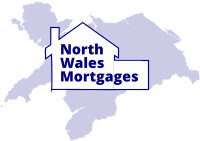Types of mortgages
Choosing the right type of mortgage to suit your financial situation and investment needs is a major decision when purchasing any home or property

By Nick Partington
Different Types of Mortgages
Choosing the right mortgage isn’t easy but once you understand all the jargon associated with mortgages and the different deals that are available, making your choice should be much easier.
Essentially there are 2 types of mortgages, Capital and Interest Repayment and Interest Only.
They both work in the same way – you borrow money to buy a property over a set term, and pay interest on what you owe, you are also expected to pay back the amount you borrowed.
How you pay back what you borrowed is what differentiates these 2 types of mortgage
- Repayment Mortgage
Most mortgages are arranged on a Capital and Interest Repayment basis usually referred to as a Repayment Mortgage, this means that every month you pay interest on what you owe, as well as a part of the capital (the amount you still owe).
By the end of the mortgage term, assuming that you’ve made all of your payments, you will have paid interest along the way and you will have repaid the original amount you borrowed.
How much you pay back each month is determined by, how much you’ve borrowed, the rate of interest you’re paying, and how long your mortgage term is.
You can opt for a shorter or longer mortgage term depending on how much you can afford to pay each month.
- Interest Only Mortgages
Some mortgages however, are arranged on an interest-only basis, this means you pay interest on the amount you owe each month but you do not pay off any of the capital (the amount you owe).
You have to pay off the original amount you borrowed at or before the end of the mortgage term.
The advantage of an interest-only deal is that monthly payments will be much lower than with a repayment mortgage, however you must ensure that you have a definite strategy to pay the mortgage off in the future.
Traditionally this was with a savings plan (endowment mortgage), but this strategy is not really considered viable any more.
More likely strategies are from the sale of other properties or suitable assets or by downsizing properties.
To be eligible for an interest-only deal, you’ll need to be able to prove to the lender that you’ve got a realistic repayment strategy in place.
“If you want to increase your chances of making a major mortgage mistake simply read the one of the many “best buy tables” and go for one of the deals at the top.”
Different interest rate methods
Use these quick links if your looking for information on a specific interest type.


The Two main interest rate types are:
Fixed rate mortgages
With a fixed rate mortgage, you pay a fixed rate of interest for a set term, typically from two to ten years, or sometimes even longer, even for the term of the mortgage.
This can provide peace of mind, as your monthly mortgage payments will be the same every month, regardless of whether or not interest rates rise. Of course, the downside is that if interest rates fall, your payments will still stay the same.
If you want to pay off your mortgage before your fixed rate comes to an end, there will usually be Early Repayment Charges (ERC’s) to pay.
After the fixed period finishes, you will normally move onto your lender’s Standard Variable Rate (SVR), or other pre-determined rate, which is likely to be more expensive.
If your fixed rate deal is coming to an end in the next few months, it’s a good idea to start shopping around now.
Many lenders allow you to secure a new deal several months in advance, allowing you to switch across as soon as your current rate ends, and avoid moving to a higher SVR.
Variable rate mortgages
With a variable rate mortgage, your monthly payments are determined by the lenders Standard Variable Rate (SVR) and can go up or down depending on the changes in the interest rate.
the Standard Variable Rate is usually the rate charged when any fixed, discounted or other type of mortgage deal comes to an end. There are usually no Early Repayment Charges (ERCs) if you want to switch away from your lender’s SVR.
There are other types of variable rate mortgage available too. These are:
• Tracker mortgages
• Discounted rate mortgages
• Capped rate mortgages
Tracker mortgages
A Tracker Rate Mortgage,tracks a nominated interest rate (usually the Bank of England Base Rate), plus a set percentage. When the base rate goes up, your mortgage rate will rise, and if the base rate falls, your rate will go down. Some lenders set a minimum rate below which your interest rate will never drop (known as a collar rate) they may also set a cap to the rate, but that is rare.
Discount rate mortgages
A Discounted Rate Mortgages is linked to the lenders Standard Variable Rate but with a set reduction. Mortgages with discounted rates can be some of the cheapest deals but, as they are linked to the SVR, your rate will go up and down when the SVR changes.
Capped rate mortgages
A Capped Rate Mortgage is a variable rate mortgage, like other variable rate mortgages they can go up or down as the interest rate changes, but there is a ‘cap’, a limit above which your interest rate cannot rise. This can provide reassurance that your repayments will never exceed a certain level, but you can still benefit when rates go down.
The additional security of this type of deal provides means that interest rates tend to be slightly higher than the best discounted or tracker rates. There will also usually be an Early Repayment Charge (ERC) if you pay off the mortgage in full during the term.
Offset mortgages
An offset mortgage enables you to ‘offset’ any savings you may have against your mortgage. Instead of earning interest on your savings, you are charged less interest on your mortgage.
If you have a mortgage of £100,000 and savings of £5,000, your mortgage interest is calculated on £95,000 for that month.
Borrowers can usually choose to either reduce their monthly mortgage repayments as a result of the reduced interest charge, or keep their monthly payments as they are in order to reduce the overall term of the mortgage by paying it off at a faster rate.
As you don’t earn interest on your savings, there is no tax to pay on them, and you can take your money out at any time. Offset mortgages can either have fixed or variable rates, depending on which kind of deal you want.
Buy to Let mortgages
Buy to Let mortgages are used to buy a property and rent it out rather than live in it yourself.
The amount you can borrow is usually based on the rental income you expect to receive but some lenders may take your income and personal circumstances into account as well.
They will also apply a ‘stress test’ so that they can see whether you would be able to afford higher mortgage rates in future, or be able to sustain any possible void periods without a tenant.
It can be a challenge for first time buyers or first time landlords to get a Buy to Let mortgage.
Let to Buy mortgages
A Let to buy mortgage is essentially a buy to let mortgage but differs in that you are arranging a mortgage on the property you currently live in with the intention of renting it out.
In this instance you are most likely to be using some or all the money raised on the let to buy mortgage to buy the new house.
What else do you need to know?
The range of mortgage deals available to you will depend on how big a deposit you have, or the level of equity you have in your existing property. Lenders usually offer their best rates to those with larger deposits, as they are considered lower risk.
If you’re a first time buyer finding it impossible to build a big deposit, however, as several lenders offer 95% mortgages, whereby they will lend you up to 95% of the value of the property you are buying.
When choosing a mortgage, don’t just look at the headline rate alone. It’s important to factor in any other costs, such as the arrangement fee, and to look at any incentives the mortgage might come with, such as cashback, or help with valuation or legal costs.
We know how complicated the mortgage market is and we’re happy to answer any questions you have. We will help you find the mortgage that suits you best. There’s no obligation and no charge for our service.
